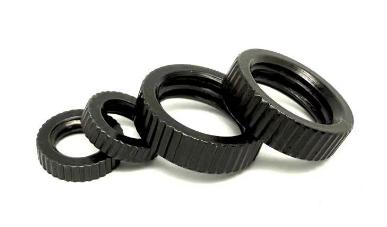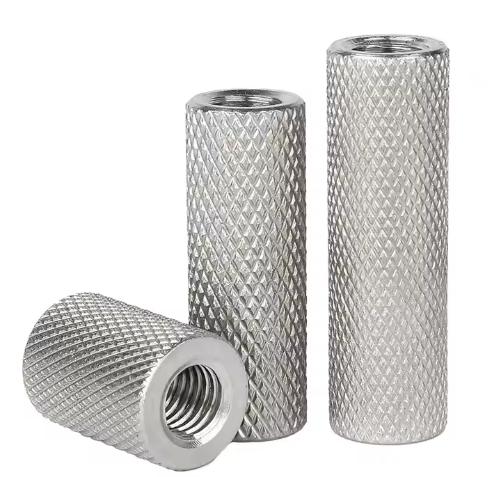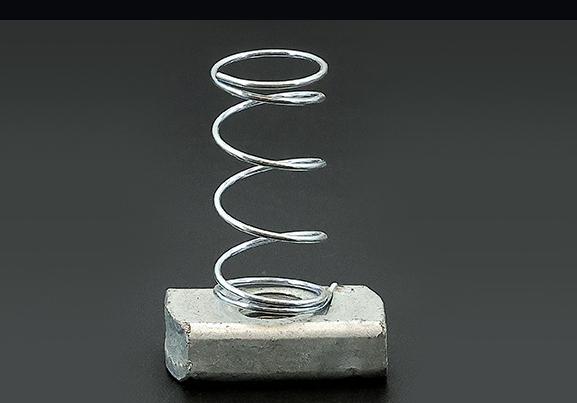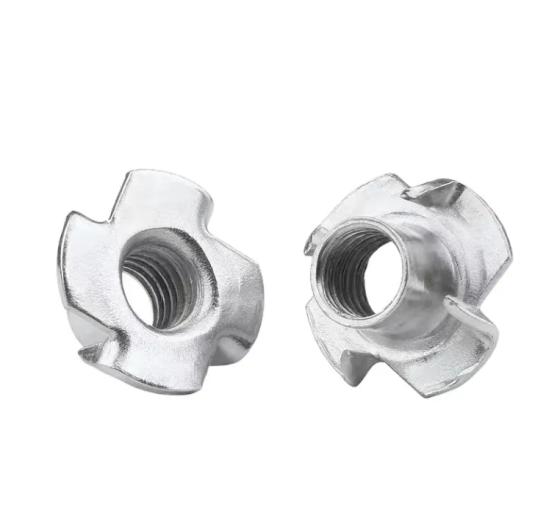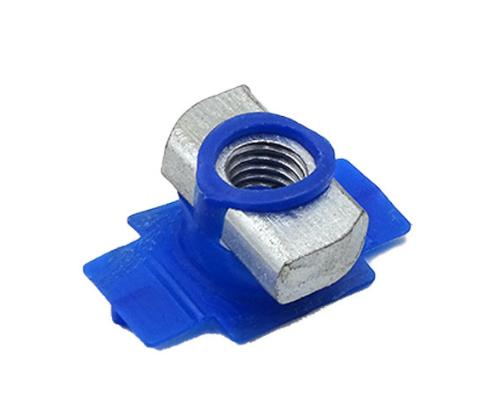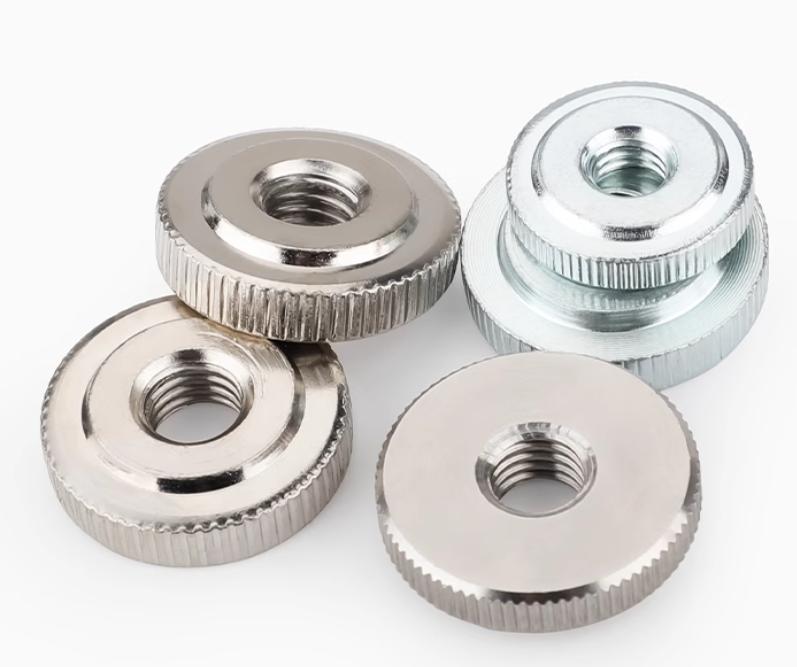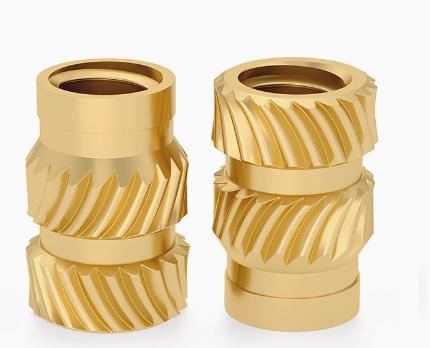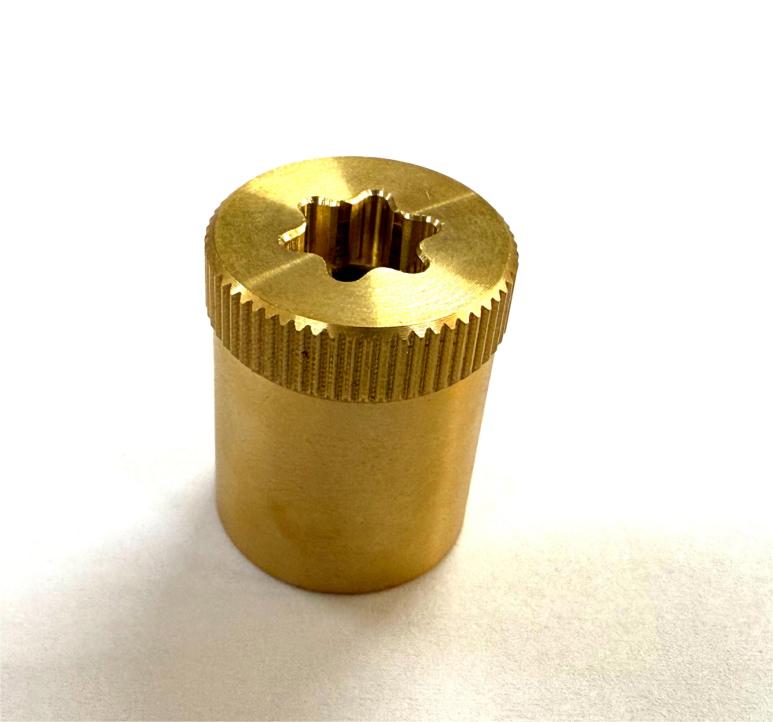How to Design and Manufacture Custom Nuts for Specific Applications
In fastener applications, standard nuts find usage to meet general needs in industries. However, applications requiring special solutions often necessitate customized solutions tailored specifically for operating conditions, materials specifications or performance specifications. Special nuts are created specifically to meet these requirements with precision, strength, and functionality required of them in these special cases.

Table of Contents
Why Choose Custom Nuts
Custom nuts provide the ideal solution when standard fasteners cannot meet all your fastening needs. Common applications of custom nuts include aerospace, automotive, construction, marine and energy industries where extreme environments exist like high temperatures or corrosive conditions that necessitate specific material choices, thread size specifications and surface finishes to function optimally under such challenging circumstances.
Available with precise specifications that meet stringent standards in these demanding situations for optimal function – material selections such as material choice thread pitch and surface finishes to meet this standard are just some features available as part of their functionality under such demanding situations.

Key Features of Custom Nuts
Custom nuts are constructed with some special features that make them highly versatile and reliable for various industrial uses.
1. Material Flexibility
Most impressive is the ability to select custom materials suited to specific industrial conditions, such as corrosion management or strength requirements. This allows custom nuts to be specially designed to shine in industries ranging from aerospace to marine systems.
2. Thread and Dimensional Customization
Custom nuts can be modified to alter their threading and diameter to meet specific requirements. By modifying the thread type, pitch, and nut diameter, manufacturers are able to create a nut to perfectly fit within an assembly for a good and tight connection. This is particularly useful in high-stress or vibration applications where close tolerance becomes important.
3. Locking Mechanisms
Besides size and material personalization, locking mechanisms can also be incorporated into special nuts so that these would not loosen under vibration. Locking nuts such as hex lock nuts with nylon inserts or mechanical lock nuts give assurance that the nut is firmly held in its place, which enhances reliability and safety.

4. Surface Coatings and Finishes
Finishes on specialty nuts must also be well chosen; their selection will play a crucial role in durability and appearance. Hard anodizing or zinc plating provides corrosion protection that allows these nuts for exposure to harsh environments like marine or chemical processing applications.
5. Load-bearing Capacity
Custom nuts can be specifically designed to achieve specific load ratings for prolonged use in high-pressure or other demanding applications, so they are the best choice when standard nuts can provide inadequate strength or longevity.
6. Compliance with Industry Standards
Custom nuts will usually be created to comply with industry standards or practices such as ISO or ASTM for safe operation in industries such as automotive, aerospace and construction.

Key Applications of Custom Nuts
This chart provides a clear view of where custom nuts are applied across various industries, highlighting their importance in securing components in critical systems and structures.
| Application | Description | Industries |
| Automotive and Transportation | Custom nuts are used to secure components like exhaust systems, wheels, suspension parts and chassis assemblies in vehicles. | Automotive, Aerospace, Rail and Marine sectors. |
| Construction and Structural Engineering | Used for fastening bolts securely into building frames, bridges and other large structural elements requiring precise fittings and strength. | Civil Engineering, Building Construction and Infrastructure |
| Heavy Machinery and Equipment | Custom nuts are essential in fastening heavy machinery components like gears, motors and hydraulic systems. | Manufacturing, Mining, Agriculture, Industrial Equipment |
| Aerospace | Custom nuts are specially-engineered for lightweight yet high-strength fastening in critical aerospace components, such as airframes, engines and control systems.. | Aerospace and Defense |
| Renewable Energy (Wind & Solar) | Used for the assembly of wind turbines and solar panel structures where durability and corrosion resistance are of utmost importance. | Renewable Energy, Wind, and Solar |
| Oil and Gas | Custom nuts are essential in providing secure attachment of drilling equipment, pipelines, valves, and pumps in hostile environments that require high resistance to heat and corrosion resistance. | Oil & Gas, Energy, Offshore Drilling |
| Electronics and Electrical Systems | Used in electronic enclosures, connectors, and circuit boards, where precision and electrical conductivity are critical. | Electronics, Electrical Systems |
| Marine Industry | Custom nuts are used to secure marine components like engine parts, propellers, and deck fixtures, where corrosion resistance is vital due to saltwater exposure. | Marine, Naval |
| Railways | Custom nuts ensure the safety and reliability of train components, including rail tracks, braking systems, and undercarriages. | Rail, Transportation |
| Food and Pharmaceutical Manufacturing | Used in food processing and pharmaceutical machinery where hygienic and corrosion-resistant materials are required for safe operations. | Food & Beverage, Pharmaceuticals, Medical Equipment |

Key Steps in Manufacturing Custom Nuts for Specific Applications
This chart captures the critical steps involved in manufacturing custom nuts to ensure quality, precision, and consistency.
| Step | Action | Key Considerations |
| 1. Design Specifications | Define nut dimensions, material, threading, and coating | Customer requirements, application details |
| 2. Material Selection | Choose the appropriate material (steel, brass, etc.) | Strength, corrosion resistance, cost |
| 3. Material Cutting | Cut raw material into appropriate lengths | Tolerance control, waste minimization |
| 4. Threading | Create internal or external threads | Thread type, pitch, and precision |
| 5. Heat Treatment | Heat treat the material to improve strength and hardness | Material type, desired properties (hardness, toughness) |
| 6. Surface Finishing | Polish or coat the nuts to prevent corrosion | Aesthetic appeal, surface protection |
| 7. Quality Control | Inspect dimensions, threads, and surface quality | Tolerance levels, thread integrity |
| 8. Packaging | Package nuts for delivery | Protection from damage, labeling |
| 9. Testing and Final Inspection | Conduct final functional and dimensional tests | Ensure performance standards met |

Advancements in Manufacturing Custom Nuts
Custom nuts manufacturing has experienced remarkable advances, driven by technological innovations and increasing consumer demand for precision, durability, and application-specific solutions.
Automation and Smart Manufacturing
Automation and Industry 4.0 technologies have transformed nut manufacturing. Automation machinery equipped with CNC (Computer Numerical Control) systems ensure precision when it comes to machining, threading and shaping custom nuts. Smart manufacturing systems powered by IoT (Internet of Things) enable continuous monitoring of production processes while also reducing errors and increasing efficiency.
Advanced Materials
Thanks to advances in materials science, manufacturers are now producing custom nuts with advanced alloys and composites. Titanium, superalloys and engineered plastics have become increasingly popular as manufacturers use these high-performance materials in applications requiring strength, corrosion resistance or lightweight properties in environments with extreme temperatures, pressure or chemical exposure environments.
High-performance materials have demonstrated their resilience against extreme environments more successfully than their counterparts, helping keep costs within acceptable levels for applications that require lightweight strength like Titanium superalloys engineered plastics or even chemical exposure environments.
Additive Manufacturing (3D Printing)
Additive manufacturing, commonly referred to as 3D printing, has revolutionized the production of custom nuts for prototyping and small-batch orders. 3D printing enables complex geometries and unique designs that would otherwise be difficult to achieve using traditional methods; additionally it reduces material waste and production time substantially, making 3D printing an economical solution for fasteners of all sorts.
Surface Treatments and Coatings
Technological advances in surface treatments have greatly increased the durability and functionality of custom nuts. Cutting-edge coating techniques such as Physical Vapor Deposition (PVD), electroplating and anodizing provide superior corrosion, wear, chemical exposure resistance while special anti-friction finishes or coatings may further increase performance depending on application needs.

Custom Threading Techniques
Precision threading is key in custom nut manufacturing, and advances in threading technology have significantly enhanced this aspect of their production. Machines now use high-speed threading tools and optical inspection systems to ensure accurate thread dimensions and pitch. In addition, self-locking or double-start threads have increasingly become available as options to meet specialized requirements.
High-Speed Cold Forging
Cold forging technology has advanced substantially, enabling efficient production of custom nuts with consistent quality and strength. High-speed forging presses are capable of creating nuts with complex shapes while simultaneously minimizing material waste – an approach especially useful when it comes to mass production.
Quality Control Innovations
Advanced quality control systems for nuts manufacturing use imaging, laser measurement and X-ray inspection technologies to detect defects immediately. Automated inspection processes ensure every custom nut meets stringent standards in terms of size, threading and material integrity for improved reliability and reduced product recalls.
Digital Design and Simulation
Utilizing Computer-Aided Design (CAD) software and simulation tools enables manufacturers to design and test custom nuts virtually before production. Engineers can analyze stress, load distribution, thermal performance and optimization factors to find optimal designs for specific applications; this reduces physical prototyping requirements thus speeding up development time.

Sustainability and Green Manufacturing
Sustainable practices are becoming an increasing part of custom nut manufacturing processes, using energy-efficient machinery, recycling production waste, and employing eco-friendly materials that minimize their environmental impact – in line with industry trends toward sustainability and corporate responsibility.
Customization at Scale
Advancements in manufacturing technologies have made it possible to produce custom nuts in both small and large quantities without compromising cost-efficiency. Robust manufacturing systems allow manufacturers to adapt quickly to customer requests with minimum downtime, providing companies with a means to meet specific customer demands while meeting them without costly backorders.

Summary
Custom nuts provide an effective fastening system solution to industries requiring specialized fastening systems. Combining advanced materials, precision engineering, and tailored designs into tailored fasteners provides unsurpassed reliability and performance in various environments such as aerospace, automotive, marine and energy applications. Custom nuts guarantee operational efficiency and safety even under extreme environments.

